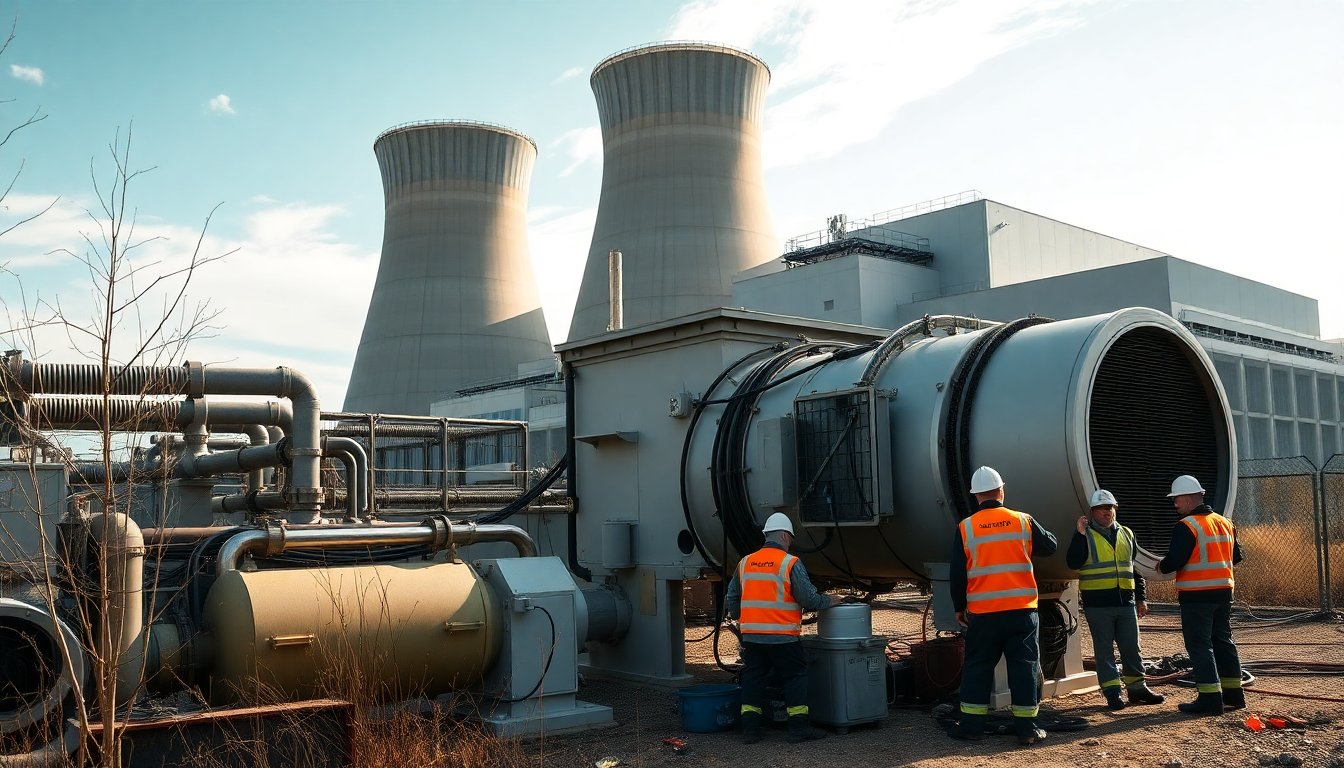Table of Contents
The Zaporizhzhia nuclear power plant, Europe’s largest nuclear facility, faces significant challenges as it has been disconnected from the national grid for an extended period. The plant has been reliant on diesel generators to operate, raising serious concerns about reactor safety, particularly regarding the cooling systems essential for stability.
Recent reports from the International Atomic Energy Agency (IAEA) indicate progress in repair efforts. This follows the establishment of ‘local ceasefire zones’ in the area, aimed at enabling necessary repairs while ensuring the facility’s safety.
The importance of off-site power restoration
Restoring reliable off-site power is critical for ensuring nuclear safety and security. The IAEA highlighted this necessity in a recent statement and noted the collaborative efforts from both conflicting sides to advance the complex repair operations.
Impact of the blackout
The ongoing blackout marks the longest such event since the conflict began in February 2022, raising alarms among officials. Ukrainian President Volodymyr Zelenskyy stressed the critical nature of the situation, stating, “The generators and the plant were not designed for this, and have never operated in this mode for so long.” He confirmed that at least one generator has already failed, emphasizing the urgency of restoring power.
In response to these developments, Ukraine’s Energy Ministry has stated that specialists are actively engaged in repairing the power lines. The situation remains precarious, and any delays could have catastrophic consequences for the plant’s operations.
Concerns over radiation risks
The potential for a radiation incident is a significant concern, exacerbated by ongoing military actions in the region. The Ukrainian Energy Ministry has linked the increased risks to the occupation of the Zaporizhzhia NPP by Russian forces and the continuous shelling of Ukraine’s energy infrastructure.
International response and implications
The international community is closely monitoring the situation, recognizing that any incident at this nuclear facility could have extensive repercussions for Europe and beyond. A swift resolution to the power crisis is imperative as the stakes continue to escalate.
As repairs progress, there is a collective hope that both sides will prioritize the safety of the nuclear plant, acknowledging the global implications of any potential failure. The dialogue facilitated by the IAEA could be a vital step toward achieving a stable energy supply for the facility.
The situation at the Zaporizhzhia nuclear power plant highlights the critical intersection of energy security and geopolitical tensions. Ensuring the safe operation of nuclear facilities must be a priority, not only for Ukraine but for the entire region, as the consequences of inaction could be severe.


